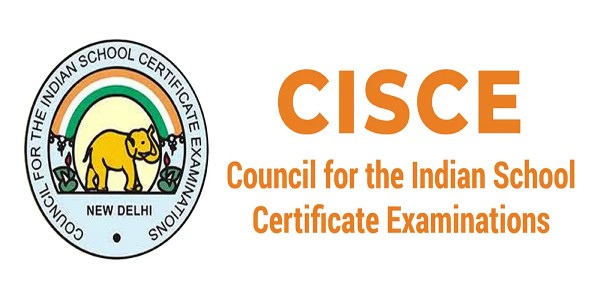
The Indian Council for the Indian School Certificate Examinations (CISCE), commonly known for its ICSE (Indian Certificate of Secondary Education) and ISC (Indian School Certificate) exams, offers a curriculum that is both rigorous and well-rounded. Known for its emphasis on English language proficiency, practical learning, and in-depth subject knowledge, the CISCE curriculum is recognized for its balanced approach that combines academic excellence with co-curricular development.
1. Structure of the CISCE Curriculum
The CISCE curriculum is organized into two key stages:
- ICSE (Indian Certificate of Secondary Education): For students in Grades 9 and 10, culminating in the ICSE exam at the end of Grade 10.
- ISC (Indian School Certificate): For students in Grades 11 and 12, leading to the ISC exam at the end of Grade 12.
Note: CISCE also offers an Indian Certificate of Secondary Education (ICSE) program for primary and middle school students (Grades 1-8) in schools that follow its curriculum.
2. Key Subjects in the CISCE Curriculum
The CISCE curriculum covers core academic subjects, languages, and a range of electives that encourage well-rounded development. It emphasizes practical knowledge, hands-on learning, and language fluency, particularly in English, and also includes a variety of co-curricular subjects to foster holistic growth.
Primary and Middle School (Grades 1-8)
Core Subjects:
- English: Focus on grammar, vocabulary, reading comprehension, creative writing, and spoken communication.
- Mathematics: Number operations, geometry, algebra, data handling, and introduction to logical thinking.
- Science: A blend of biology, chemistry, and physics, with a focus on understanding natural phenomena, observation, and experimentation.
- Social Studies: Introduction to history, geography, and civics, covering local culture, the environment, and basic governance.
- Second and Third Languages: Often includes Hindi, regional languages, or a foreign language option in some schools.
Additional Areas: Art, Music, Physical Education, Value Education, and Computer Science.
Learning Focus: Foundational skills, curiosity-driven learning, and an emphasis on comprehension and practical application.
ICSE Curriculum (Grades 9-10)
The ICSE curriculum for Grades 9 and 10 is designed to provide a comprehensive understanding of academic subjects while developing analytical, linguistic, and scientific skills. Students take the ICSE exam at the end of Grade 10.
Core Subjects:
- English Language and Literature: Strong emphasis on literary analysis, creative and argumentative writing, comprehension, and grammar.
- Second Language: Hindi or a regional language, with a focus on fluency, grammar, comprehension, and composition.
- Mathematics: Algebra, geometry, trigonometry, statistics, and probability, with an emphasis on problem-solving.
- Science (Physics, Chemistry, Biology): Each science subject is taught separately with a detailed focus on theory, experimentation, and practical applications.
- Social Studies (History and Geography): Indian and world history, geography, environmental studies, and cultural awareness.
- Environmental Education (EE): Covers sustainability, environmental conservation, and ethical considerations of environmental issues.
Electives: Students can choose additional subjects based on interests and school offerings, including:
- Computer Applications: Basics of programming, software development, and ICT skills.
- Commercial Studies: Introduction to commerce, trade, business ethics, and economic principles.
- Economics: Basic economic concepts, consumer behavior, and an introduction to macroeconomics.
- Art, Music, Physical Education: Co-curricular subjects that encourage creativity, fitness, and self-expression.
Assessment: The ICSE Board Exam evaluates students in core subjects and electives. The evaluation includes written exams, practical assessments, and project work.
Learning Focus: Mastery of subject knowledge, analytical skills, time management, and preparation for advanced studies.
ISC Curriculum (Grades 11-12)
In Grades 11 and 12, students choose a specialization based on career interests, leading to the ISC (Indian School Certificate) Exam at the end of Grade 12. The curriculum provides in-depth knowledge and prepares students for higher education and professional fields.
Core Subjects (Compulsory):
- English: Advanced study of language and literature, focusing on analysis, critical thinking, essay writing, and comprehension.
Streams and Electives:
1. Science Stream:
- Physics: Mechanics, electricity, optics, thermodynamics, modern physics, with experiments and practicals.
- Chemistry: Organic, inorganic, and physical chemistry, focusing on chemical reactions, bonding, and laboratory work.
- Mathematics or Biology: Mathematics (calculus, algebra, probability, vectors) or Biology (genetics, human physiology, evolution, and ecology).
- Electives: Computer Science, Environmental Science, Physical Education, Biotechnology, or Psychology.
2. Commerce Stream:
- Commerce: Principles of business, trade, and commerce, with topics like business structures, partnerships, and ethics.
- Accountancy: Financial accounting, book-keeping, financial statements, and analysis.
- Economics: Microeconomics (demand, supply, market forms) and macroeconomics (national income, fiscal policies, inflation).
- Electives: Mathematics, Business Studies, Physical Education, or Computer Science.
3. Humanities Stream:
- History: World history, Indian freedom movement, social and political changes, revolutions.
- Geography: Physical and human geography, environmental studies, map skills, climate and resources.
- Political Science or Sociology: Study of political theories, Indian constitution, international relations, or the study of social behavior and society.
- Electives: Psychology, Art, Physical Education, Economics, Environmental Science, or Home Science.
Assessment: The ISC Board Exam includes theoretical exams, practical assessments, and project work in core and elective subjects. The ISC results play a crucial role in university admissions, both in India and internationally.
Learning Focus: Subject expertise, practical applications, project-based learning, and preparation for college entrance exams.
3. Assessment and Evaluation in the CISCE Curriculum
CISCE places a strong emphasis on both theoretical and practical knowledge, encouraging project work, practical assessments, and real-world applications. Evaluations are done through:
- Formative Assessments: Ongoing assessments through assignments, quizzes, and projects that focus on understanding and retention.
- Summative Assessments: End-of-term exams, including practical exams in subjects like science, computer science, and art.
- ICSE and ISC Board Exams: Conducted at the end of Grades 10 and 12, respectively, these board exams are crucial for academic progression.
The curriculum also includes project work and laboratory practicals in science, computer science, and environmental studies, fostering hands-on learning and analytical skills.
4. Key Features of the CISCE Curriculum
- Strong Emphasis on English Proficiency: CISCE’s curriculum gives English equal weight as core subjects, enhancing students’ language proficiency and communication skills.
- Balanced Academic and Practical Approach: The curriculum emphasizes both theoretical understanding and practical application, especially in science, arts, and vocational subjects.
- Wide Choice of Electives: Students have the flexibility to choose electives that align with their interests and future goals, making the curriculum more personalized and engaging.
- Project-Based and Experiential Learning: Through projects, fieldwork, and practicals, students gain a deeper understanding of real-world applications.
- Holistic Development: Co-curricular subjects such as Art, Music, Physical Education, and Environmental Studies promote all-around development, creativity, and physical well-being.
5. Co-Curricular and Life Skills Development
In addition to academics, CISCE promotes co-curricular learning and life skills development:
- Physical Education and Sports: Encouraging physical fitness, teamwork, and sportsmanship through structured PE classes and sports activities.
- Art and Music Education: Opportunities for self-expression and creativity through fine arts, music, and performing arts.
- Value and Environmental Education: Instilling ethical values, social responsibility, and environmental awareness, including practical conservation efforts.
- Information and Communication Technology (ICT): Building digital literacy, basic programming, and problem-solving skills.
6. Comparison with CBSE
While both CBSE and CISCE provide high-quality education in India, some key differences include:
- Focus on English Language: CISCE places a greater emphasis on English fluency, literature, and language skills.
- Depth and Breadth of Content: CISCE has a reputation for being more in-depth in content, especially in humanities, languages, and literature.
- Flexibility in Electives: CISCE provides more elective choices, allowing students to explore diverse subjects in greater detail.
- Project-Based Learning: CISCE integrates more project work, practical assessments, and application-oriented activities compared to CBSE’s more theoretical approach.







